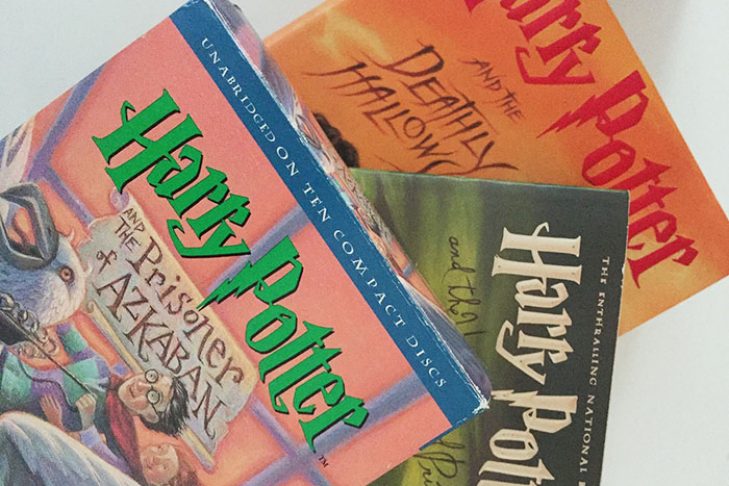I was almost too old for Harry Potter when JK Rowling introduced her masterpiece to the world in 1997. I may have been almost too old but that didn’t stop me from spending the next 10 years voraciously reading, re-reading and waiting impatiently for the next book to arrive. When the final book was finally published, I was visiting my parents’ house for the weekend. Obviously, I had pre-ordered the book months in advance and I hadn’t realized that I wouldn’t be home that weekend. Panicked, I went online and changed the delivery location to my parents’ house, crisis averted. Perhaps I shouldn’t admit this, but I met the UPS driver in my parents driveway with unabashed glee and proceeded to ignore my family for the next 24 hours as I made my way through the final book. It was totally worth it.
These days, my love of Harry Potter lives in my heart as quiet embers, easily fanned into a greater flame when JK Rowling tweets something incredible (which is often) or more recently, when something new is announced. Yes, I have already pre-ordered a copy of Harry Potter and The Cursed Child, a West End play beginning this summer, telling the story of an adult Harry and company.
Perhaps it is unnecessary at this point to extoll the virtues of the Harry Potter series; the magic of Harry Potter is different for everyone. In the nine years since the final book was published and the 19 years since the first book, entire other books have been written about every possible angle and theme of the series, not to mention countless articles, blog posts and of course memes. If you’re a Harry Potter lover, you’ve had ample time to analyze the reasons why, and if you could care less about Harry Potter, thank you for getting this far into this blog post.
JK Rowling’s genius is making the world of Harry Potter seem almost possible. While I begrudgingly accepted my fate as that of a muggle, I still hope that even if I could not be a witch, somewhere someone is. This epic story speaks to those marginalized by society, those whose dreams seem too big, those who want to change their circumstances, those drawn to making the world a better place, to fighting against injustice.
As my life has changed and evolved since I first picked up Book 1 in 1997, so has my reading of the story. I hear the commentary on human nature more loudly. Not everything is always as it seems and rarely is what we see, what we actually get. We meet a wide swath of characters in Harry’s world, not simply heroes and villains, but complex individuals who make difficult decisions in the face of fear, of change, of darkness. Sometimes, those who come from the most “perfect, pure” families choose evil and destruction while those from the most humble, diverse roots—the “mudbloods”—are the ones who remind us what is truly important and even save our humanity. And sometimes the heroes make the wrong decisions, while the villains find the light.
I have always cringed at the term, “mudblood.” In college, I identified with it acutely when I was told I wasn’t Jewish because my mother wasn’t. How could I not belong in the only community I ever truly felt part of? Why didn’t it matter how I behaved, the choices I made, the way I lived my life? Why did none of that “count” because my mother’s blood ran through my veins? It threw me into an identity crisis that took years to reconcile.
These days, my life and my work at InterfaithFamily reminds me again of the powerful message of Harry Potter, as we strive to teach our beloved community to not only tolerate the diversity among us, but rather embrace it, learn from it and allow it to change us for the better. After all, where would we be without the most famous “mudblood,” Hermione? The more stories I hear, people I meet, families I am honored to learn from, the more I realize that we are all mutts, all a combination of geography, culture, history, and blood. We are all mudbloods. That doesn’t mean we are all the same or should be, but it does mean that the humanity we share can be more powerful than all the Voldemorts out there.
I would feel remiss if I didn’t end with the powerful and yes, magical, words of Professor Albus Dumbledore: “Differences of heart and language are nothing at all if our aims are identical and our hearts are open.”
This post has been contributed by a third party. The opinions, facts and any media content are presented solely by the author, and JewishBoston assumes no responsibility for them. Want to add your voice to the conversation? Publish your own post here. MORE

